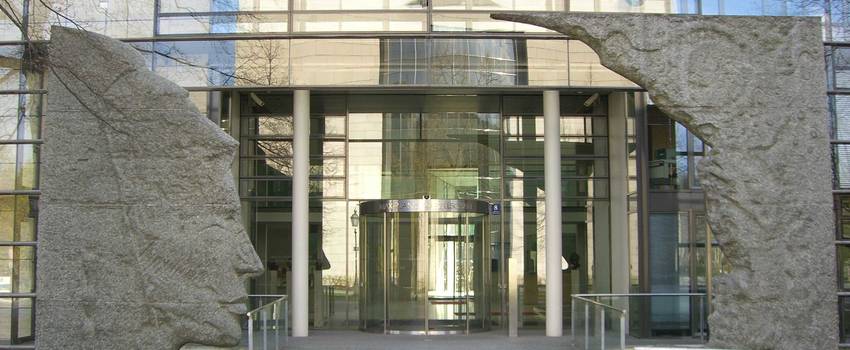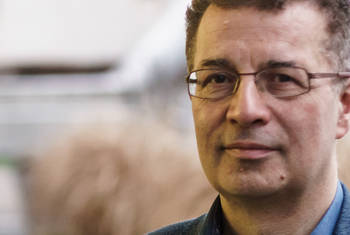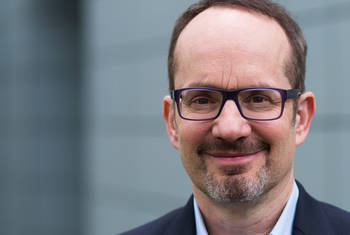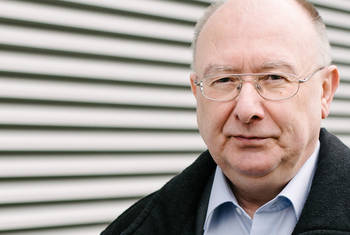Arno Villringer How Can Functional Magnetic Resonance Imaging Help Detect, Visualize, and Treat Strokes?
Arno Villringer is Director of the Max Planck Institute for Human Cognitive and Brain Sciences in Leipzig as well as Director of the Berlin School of Mind and Brain. He holds a professorship in Cognitive Neurology at the University of Leipzig and is affiliated with the Charité Medical School in Berlin where he is an Honorary Professor. After accomplishing his medical training and PhD, Villringer habilitated in Neurology at the Ludwig Maximilian University Munich, Germany. Among his research areas are Optical Imaging and Brain Plasticity. His findings in the field of Magnetic Resonance Imaging (MRI) contribute significantly to the understanding and treating of stroke-related brain-damage.
Area of Research
Neurology, Cognition
since 2007
Director
Max Planck Society (more details)
Max Planck Institute for Human Cognitive and Brain Sciences
since 2014
since 2007
Director
Humboldt University of Berlin (Humboldt-Universität zu Berlin)
Mind and Brain Institute
since 2007
Director
University Hospital Leipzig
Department for Neurology
since 2006
Speaker
Humboldt University of Berlin (Humboldt-Universität zu Berlin)
Berlin School of Mind and Brain
since 1999
Coordinator of Competence
Hep-Net, National Network of Competence on Viral Hepatitis
2001-2008
Board of Directors
German Stroke Society
2004-2007
Head
Charité - University Medicine Berlin (Charité - Universitätsmedizin Berlin)
Clinic of Neurology
2002-2007
Coordinator
Humboldt University of Berlin (Humboldt-Universität zu Berlin)
Berlin Center for Advanced Neuroimaging
1996-2007
Deputy Director
Charité - University Medicine Berlin (Charité - Universitätsmedizin Berlin)
Department of Neurology
1999-2004
Chief Physician
Charité - University Medicine Berlin (Charité - Universitätsmedizin Berlin)
Clinic of Neurology
1993-1999
Consultant
Charité - University Medicine Berlin (Charité - Universitätsmedizin Berlin)
Department of Neurology
1986-1993
Resident
Ludwig Maximilian University Munich (Ludwig-Maximilians-Universität München)
Neurology and Psychiatry
1985
Research Fellow
Massachusetts General Hospital
Harvard Medical School
1984
Medical Thesis
Albert Ludwigs University of Freiburg (Albert-Ludwigs-Universität Freiburg)
Medical School
- Organization for Human Brain Mapping (2012)
Prizes
- Honorary Professorship for Neurology, Charité, Humboldt-Universität (2008)
- Pater Leander Fischer Prize of German Laser Society (2005)
- Winner in national competition for five Neuroimaging Centers in Germany (2002)
- Winner in National Competition for Nine National Competence Networks (1999)
- Endowed Professorship (“C3”, DFG) as Head of Clinical Research Group (1996)
- Gerhard Hess Prize, German Research Foundation (DFG) (1993)
- Scholarship, German Research Foundation (DFG) (1986)
 © Maximilian Dörrbecker
© Maximilian Dörrbecker
Max Planck Society
"The Max Planck Society is Germany's most successful research organization. Since its establishment in 1948, no fewer than 18 Nobel laureates have emerged from the ranks of its scientists, putting it on a par with the best and most prestigious research institutions worldwide. The more than 15,000 publications each year in internationally renowned scientific journals are proof of the outstanding research work conducted at Max Planck Institutes – and many of those articles are among the most-cited publications in the relevant field." (Source)
Institute
Max Planck Institute for Human Cognitive and Brain Sciences
The aim of the Max Planck Institute for Human Cognitive and Brain Sciences in Leipzig is to investigate human cognitive abilities and brain processes. The main focus of the research is on the neuronal basis of higher functions of the brain such as speech, music, and action. To this end, the scientists’ primary interest focuses on how these are perceived, processed, planned, and generated, as well as how perception and generation influence each other. They also investigate the plastic changes to the brain after strokes, and how these affect different cognitive abilities. The Department of Neurophysics, which was established in early 2007, is specifically concerned with the use and development of imaging methods for the neurosciences. (Source)
Map
Stroke is one of the most frequent neurological disorders, befalling over 250.000 persons each year in Germany alone. The research underlying this video explores the role of non-invasive methods for stroke diagnosis and therapy. The use of functional Magnetic Resonance Imaging (fMRI), which produces image-signals on the basis of the oxygen-concentration in the blood, allows for the detection of increased or decreased activity in the brain. ARNO VILLRINGER explains how this method helps detect affected networks of the brain in the acute phase and enables a tracking progress in the chronic phase of a stroke: The networks of disturbed blood flow in the brain correspond to changes in the neurological functions of the patient. By identifying and visualizing the affected areas non-invasively a continuous monitoring of the patient and a targeted application of treatments, e.g. magnetic stimulation or drugs, is possible and is already tested in clinical studies.
LT Video Publication DOI: https://doi.org/10.21036/LTPUB10351
Identifying the Perfusion Deficit in Acute Stroke With Resting-state Functional Magnetic Resonance Imaging
- Y. Lv, D. S. Margulies, R. C. Craddock, X. Long, B. Winter, D. Gierhake, M. Endres, K. Villringer, J. Fiebach and A. Villringer
- Annals of Neurology
- Published in 2013









